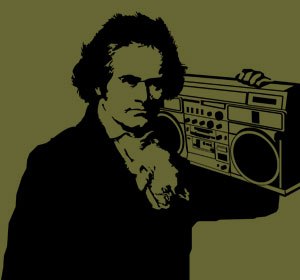by natchaitkin | May 14, 2014 | Uncategorized
Is classical music entertainment?
Recently, the very traditional world of classical music has been revitalized by people trying new things (and not a moment too soon). One of my favorites: Time for Three, who call themselves the world’s first “classically trained garage band.”
They are, first and foremost, GREAT players, trained at one music’s elite academies, the Curtis Institute. But they also put on a great show, playing original compositions, tunes by Mumford and Sons, and mashups of Grieg’s Holberg Suite with Led Zeppelin and Justin Timberlake. Next week’s playlist will be about “cover” songs, and I’ll include some of their tunes.
I’ve gotten to back these guys up twice this season, including last weekend with the ProMusica Chamber Orchestra.

As we walked offstage, my stand partner, Joel, (who is an innovator too – check out his group Revel) said “Kind of points out the obvious, doesn’t it – we’re in the entertainment business.” A simple statement, to which many people would say “Duh” but many others (mostly ones in the business) would say “Oh, no – what we do is too important and meaningful to be called entertainment.”
This is one of classical music’s biggest challenges – those of us who perform it see it as a a transcendent, even spiritual experience worth making an effort for, and many potential audience members think of it as just one of many choices for their leisure time. Both views are right, I think, but classical music organizations have had a hard time getting more people to come to concerts because of this difference.
Time for Three has one approach that tries to bridge that gap, and they are making a good case for shaking things up. It’s not the only solution, but it’s a good one, I think. Please post your comments, and add groups or performers you think are changing the concert world for the better.
Till Monday (and the new playlist),
Nat
by natchaitkin | May 12, 2014 | Uncategorized
Why is Beethoven’s 5th Symphony the one piece of “classical” music everyone knows? Because it’s the same four note idea repeated several hundred times!

You know those songs you can’t forget? Usually, it’s the hook that gets stuck in your head, whether it’s Beethoven’s Op. 18 #1 or My Sharona. (I grew up in the 80’s -no judgement, please!)
Whenever I present Bach and Boombox, I start with music that has a good hook. From Bach’s G major Prelude for Cello to AC/DC’s “Back in Black,” pieces that give you something to hang on to tend to stick in your head longer, and all good musicians use these hooks as building blocks.
If you want scientific proof of the power of repetition in music, you can read this article. Or, you can just listen to this Spotify playlist – all the pieces have great hooks.
Many of these are pieces I use in my program – and I’d love some more ideas from you! The playlist is collaborative – so please add some of your own favorite hooks, post your feedback, and share it with your friends!
Till Wednesday,
Nat
by natchaitkin | Apr 28, 2014 | music philosophy
Some of you may have seen Bach and Boombox, and others may have heard me talk about it (at great length, I’m sure –sorry!). For my first blog post, I thought I’d share the story of when I first started thinking about music this way.
As a freshman cello major living in the football dorm at Michigan (which was great), I was surrounded by people who didn’t know too much about what I was studying. One night I handed a recital invitation to my friend Steve in the hall – he took one look at it, and said: “No offense, Nat, but I hate what you do.”
He meant it as a joke (mostly), and I certainly laughed, but I started thinking about people like Steve, who don’t feel a connection to concert music, and how to reach them.
I have always loved jazz and R&B, and I spent most of high school obsessed with Jimi Hendrix and Led Zeppelin, so connecting these different styles has always made sense to me, and I find people more receptive to classical music when you meet them on their turf.
So, with Bach and Boombox, I’ve decided to try that, and so far, it’s working pretty well! I’ve brought the program to schools, community centers, Fortune 500 companies, parks, and even an airport!
If you want to see how it works, check out the video page.
This blog will be a way for me to share what’s happening with Bach and Boombox, interesting news and thoughts about the rapidly changing music world, and the occasional Spotify playlist (coming soon!). Hope you like it – please post your comments and share it with your friends! And if you see Steve Jacobsen from South Quad, let him know what he started!

